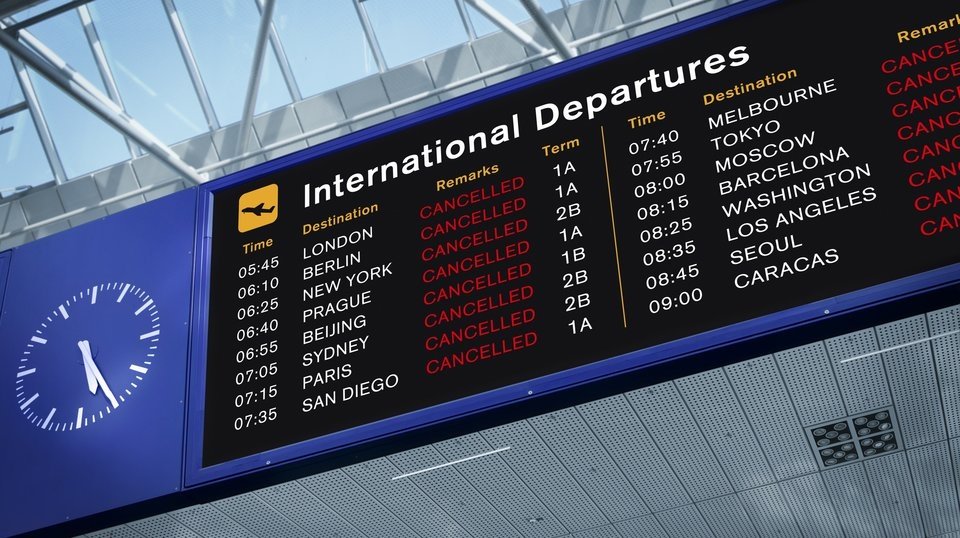Since 2003, it has been the law in Canada that airlines must compensate passengers travelling internationally (e.g., Toronto to Las Vegas or Vancouver to Sydney) for damages incurred due to flight delay or cancellation. It is quite a different matter that the law has not been enforced by the government “watchdog,” the Canadian Transportation Agency (CTA).
Even more troubling, perhaps, is that the CTA’s “Air passenger protection” consultation website on flight delays and cancellations makes no mention of this 15-year-old law, and thus creates the false impression that Canadian travellers have no recourse at all in such cases.
International itineraries: Passengers owed compensation up to CAD$8,500
If a flight is delayed or cancelled, the law is that the airlines must pay for passengers travelling internationally for:
- reasonable expenses incurred for meals, ground transportation, accommodation, telecommunications, etc.;
- cost of a flight on another airline, if the airline is unable to transport passengers within a reasonable amount of time;
- lost wages; and
- any other loss passengers may have incurred as a result of the delay in transportation.
This obligation is found in the federal Carriage by Air Act, which incorporates the Montreal Convention into Canadian law. In most cases, the airline’s liability is capped at approximately CAD$8,500 (4,694 Special Drawing Rights).
Article 19 of the Montreal Convention says that the airline can avoid liability for delay of passengers only if the airline proves that the airline, the airline’s agents, and the airline’s servants have taken all reasonable measures to prevent the delay or that there were no such measures available. Article 26 says that the airline cannot exclude or lower its liability by using a creative contractual language (e.g., calling delays a “schedule change”).
The Montreal Convention has the force of law not only in Canada, but in all 131 countries that signed it, including the United States and members of the European Union, and creates uniform international standards with respect to the rights that passengers are owed by airlines.
Canadian Transportation Agency refuses to correct consultation website
Before publishing this post, we alerted the CTA that its consultation website contains numerous erroneous statements about the rights of air passengers, and requested that the errors be corrected; unfortunately, the CTA refused to make any corrections.


